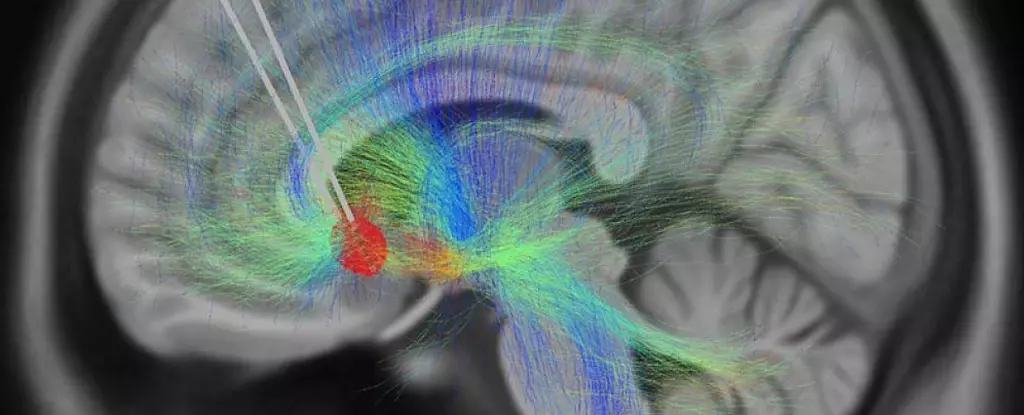Depression is a debilitating mental health condition that affects millions of people worldwide. While traditional methods of treatment have shown mixed results, recent advancements in artificial intelligence (AI) and deep brain stimulation (DBS) therapy offer hope for more effective and precise interventions. A groundbreaking study conducted by a team of scientists from the Georgia Institute of Technology, the Emory University School of Medicine, and the Icahn School of Medicine at Mount Sinai has demonstrated the potential of using AI to monitor changes in depression levels and improve treatment outcomes.
DBS therapy has shown promise in treating treatment-resistant depression. However, its success heavily relies on accurately stimulating the right brain tissue. The current method of relying on patient-reported mood can be influenced by external factors and may not provide precise feedback on the effectiveness of the treatment. To address this limitation, researchers combined electrode implants with AI analysis to identify brain activity patterns associated with successful DBS treatment.
By training an AI algorithm using brain images of the participants before and after DBS therapy, the researchers were able to identify a brain signal, referred to as a recovery signal, linked to positive treatment outcomes. This recovery signal acts as a valuable biomarker to assess the effectiveness of DBS in real-time. According to neurologist Helen Mayberg from the Icahn School of Medicine at Mount Sinai, the recovery signal demonstrated over 90% accuracy in predicting improvement in patients’ depression symptoms.
The integration of AI with DBS therapy holds immense potential in revolutionizing how depression is monitored and treated. By utilizing AI algorithms trained on brain images, clinicians and researchers can obtain more objective and accurate data than relying solely on self-reporting. This approach enables them to closely track the trajectory of patients’ recovery and make informed decisions regarding treatment adjustments.
One of the significant findings of the study was the detection of the recovery signal disappearing a month before a patient’s relapse. With this early warning system, clinicians can proactively adjust the DBS treatment to prevent relapses and provide more tailored interventions. Although the study highlights the effectiveness of DBS therapy in combination with AI, there is still much work to be done before it becomes a widely used treatment option.
While the potential of using AI in depression monitoring and treatment is promising, there are several factors to consider. The invasive nature of DBS therapy, which involves implanting electrodes in the brain, raises ethical and practical concerns. Not all individuals may be willing or suitable candidates for such an intervention. Furthermore, additional research is needed to validate the findings and expand the scope of AI-assisted monitoring to larger cohorts.
The study conducted by the team of scientists showcases the potential of AI in improving the monitoring and treatment of depression. By combining AI analysis with DBS therapy, researchers were able to identify a reliable recovery signal and track patients’ progress accurately. The integration of AI algorithms and brain imaging provides a more objective and precise method of assessing treatment outcomes. While more research is necessary, these findings offer hope for personalized approaches to treating depression and reducing the burden of this mental health condition on individuals and society as a whole.


Leave a Reply